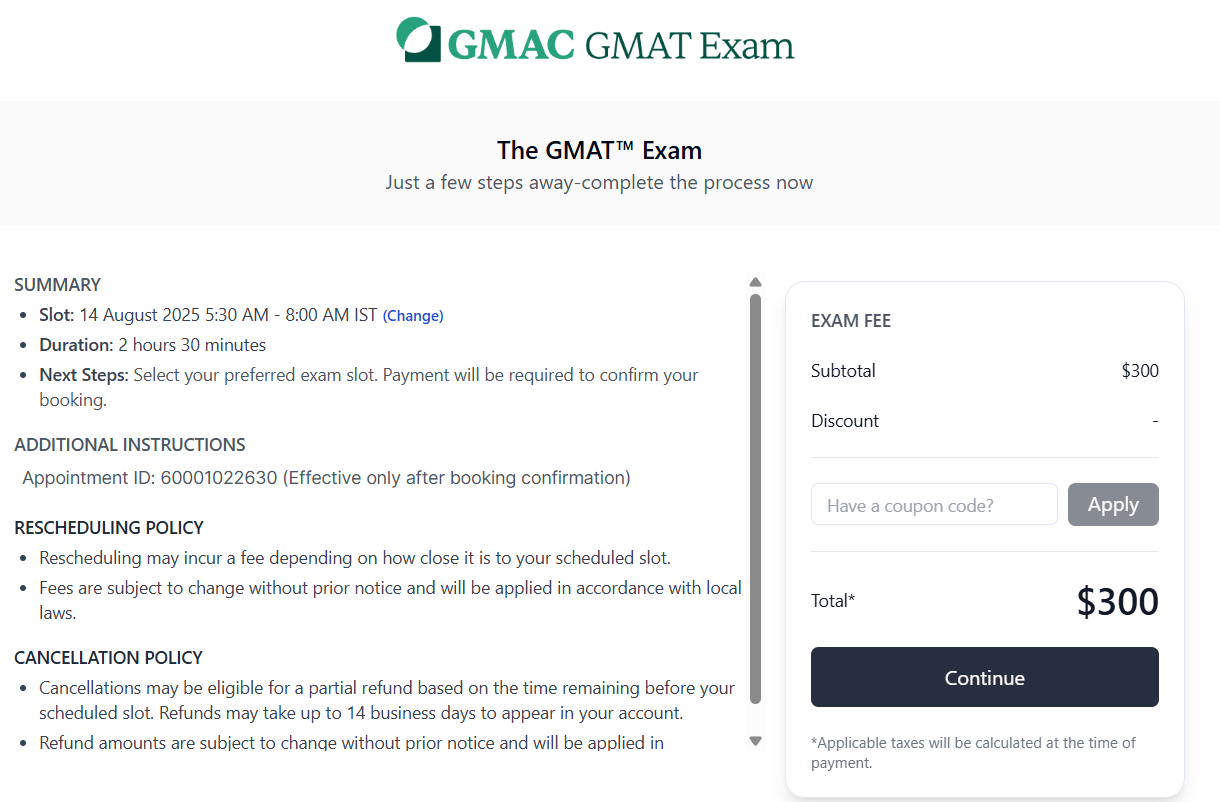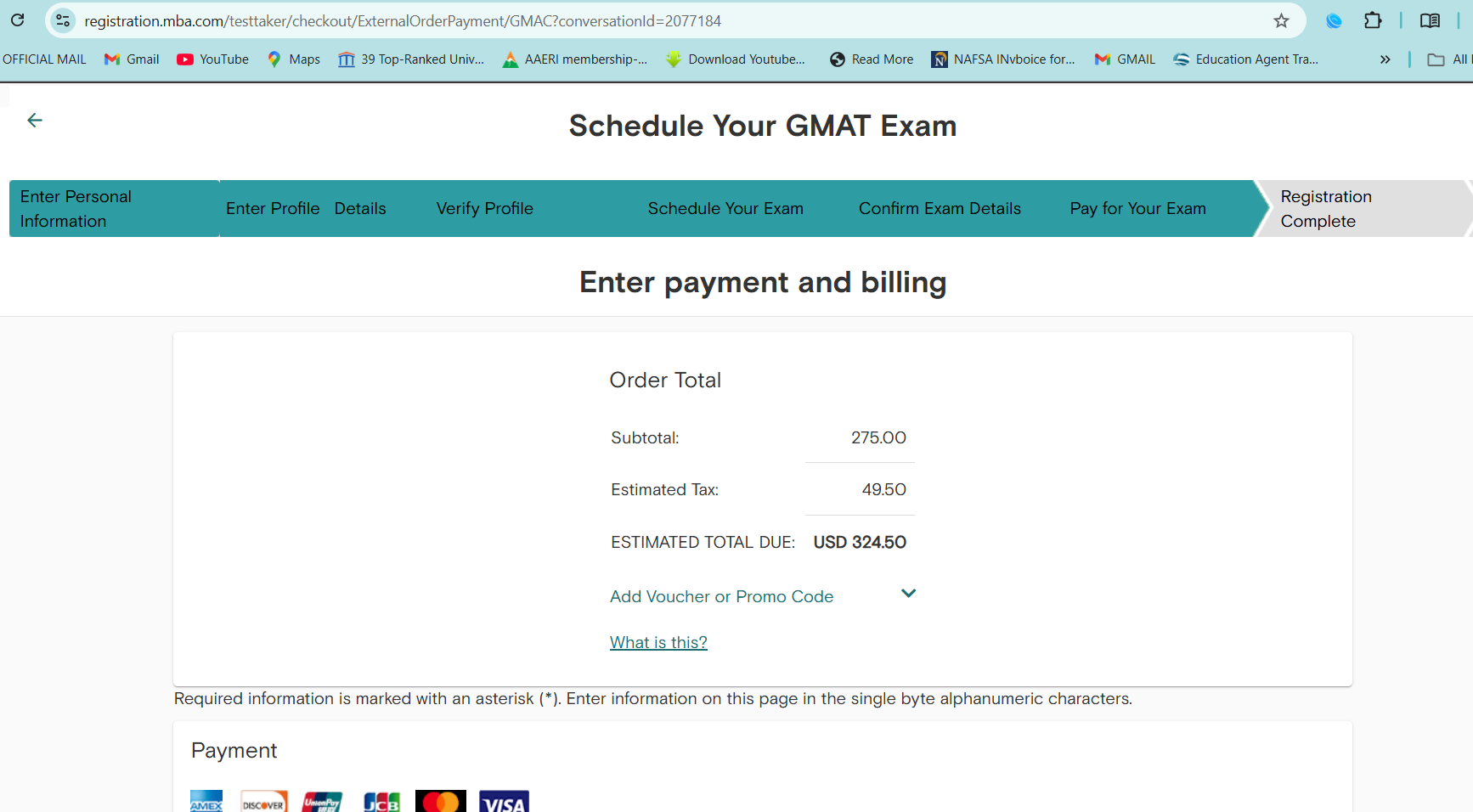GMAT : Your ticket to the best MBAs
The GMAT showcases your critical thinking and analytical skills, key for top MBA programs in the USA and globally. High scores (700+) in the GMAT Examination open doors to elite schools like Harvard, INSEAD, or LBS, boosting your admission chances.
Here’s a breakdown of some of the world’s leading MBA programs and their average GMAT Examination scores for recent incoming classes:A top MBA is you ticket to a rewarding and lucrative career. The outlook for the immediate future is also good. In the USA, General and Operations Managers, Finance Managers, Management Analysts, Project Management and Managers (all others) are projected to show a healthy growth through 2033. See the employment projections by the U.S. Bureau of Labor Statistics.
Full form of GMAT and other background
Many international students dive into test prep without knowing the full form of GMAT , assuming it’s just a test for MBA hopefuls. The full form of GMAT is ‘Graduate Management Admission Test’ and it’s a standardized exam assessing critical thinking, quantitative, verbal, and analytical skills.
Another misconception is that it’s only for MBA admissions. In reality, the Graduate Management Admission Test is also required or accepted for other graduate programs, such as Master of Science in Finance or Master of Arts in Accountancy, at many top schools. Its versatility makes it a key step for various management-related degrees, opening doors to diverse career paths in business and finance.
The history of the GMAT
Follow-up: In 1953, nine business schools formed what is now the Graduate Management Admission Council (GMAC) to create a standardized test for selecting qualified MBA applicants. Initially taken by just over 2,000 people, the Graduate Management Admission Test (GMAT) now sees over 230,000 annual test-takers and is used by more than 7,700 programs at 2,400 global business schools.
In 2012, GMAC added an Integrated Reasoning section to assess multi-source data evaluation. During the 2020 COVID-19 pandemic, GMAC introduced an online GMAT. In 2024, the test Focus Edition launched, featuring Verbal, Quantitative, and Data Insights sections, scored from 205 to 805.
History of the GMAT in India
In the 1980s-1990s, the test was primarily for Indian students targeting MBAs abroad at schools like Harvard or INSEAD.
By the 2000s, Indian institutions like ISB began accepting test scores to attract global talent. Today, over 200 programs at 140+ Indian schools, including IIM Ahmedabad, IIM Bangalore, IIM Calcutta, ISB, SPJIMR, XLRI, NMIMS, and IMT Hyderabad, accept Graduate Management Admission Test for MBAs and international admissions.
GMAT Training Online
Discover top-tier GMAT training online with Study Unifees’ Online Training, designed for ambitious students aiming for 700+ scores. Our expert instructors, deliver personalized coaching through interactive live classes and on-demand video lessons.
With adaptive practice tests mirroring the real GMAT, a comprehensive question bank, and one-on-one strategy sessions, you’ll master time management and critical thinking. Our 24/7 support and tailored study plans fit your schedule, ensuring flexibility for busy professionals.
At what times are the GMAT Training Online sessions?
Most of our students are working professionals. Thus, the classes are usually very early in the morning or late in the evenings to suit everyone’s schedule. However, there are also slots available in the day.
What will I need for the GMAT online training?
You’ll just need an internet connection, a laptop or tablet, and a good pair of earphones. It’s not advisable to take the classes on a smartphone for obvious reasons: most of the lesson content is very text heavy and smartphones are thus, not an ideal medium for these classes.
GMAT Test Fees
For an Indian student, the GMAT test fees if you are taking the test at a test center is about US$ 325 without a voucher or promo code. If you are taking the GMAT online the GMAT test fees is US$300.
Online GMAT

Test Center GMAT

How can you make the online payment?
You can pay using any credit card or PayPal. UPI options are not available as of now to pay the GMAT test fees online.
The online GMAT is cheaper, but is it a good option?
The online GMAT test is a great option! You can take the test from your home! However, the online GMAT requires candidates to agree to the Test Taker Rules & Agreement, use a secure browser, and prepare a private workspace with a 360-degree webcam scan. Prohibited items must be removed, and a stable internet connection is mandatory. Violations may lead to score cancellation, a 31-day retest wait, or bans.
GMAT Vs GRE
Since most grad business schools started accepting GRE, students are often faced with the question of which test to take. GMAT Vs GRE is not an easy choice. Both tests, while similar in some areas, are significantly different in other areas and it really depends on what you are good at while making the choice. In short, when the question of Graduate Management Admission Test Vs Graduate Record Examinations arises, the choice depends on you, rather that the tests themselves. Read on about how to choose.
Test format and timing for both tests
There are significant differences between the formats of both tests. Graduate Record Examinations has an analytical writing section, while Graduate Management Admission Test doesn’t. Graduate Management Admission Test has Data Insights, while GRE does not. Below are the formats and timings of both tests to help you choose.
| GRE | GMAT Focus | ||||
|---|---|---|---|---|---|
| Analytical Writing | 1 Analysis of an Issue Essay | 30 Minutes | Quantitative Reasoning | 21 Questions | 45 Mins. |
| Verbal Reasoning | Section 1: 12 Qsts. Section 2 15 Qsts. | Section 1: 18 Mins. Section 2: 23 Mins. | Verbal Reasoning | 23 Questions | 45 Mins. |
| Quantitative Reasoning | Section 1: 12 Qsts. Section 2 15 Qsts. | Section 1: 21 Mins. Section 2: 26 Mins. | Data Insights | 20 Questions | 45 Mins. |
| Total Time: 118 Minutes | Total Time: 135 Minutes | ||||
Are you GRE Smart or GMAT Smart?
Choosing between the GRE and GMAT depends on your strengths. The Graduate Management Admission Test, tailored for business schools, emphasizes quantitative reasoning, data analysis, and critical thinking, ideal for those strong in structured problem-solving and logical arguments. Its Data Insights section tests real-world business skills.
The GRE, accepted by diverse graduate programs, focuses on verbal reasoning and creative thinking, suiting those with strong vocabulary and essay-writing skills. Also, your skill at identifying relationships between componential parts of sentences and components of short texts is very important.
If you excel in math and quick decision-making, lean GMAT. If you’re a wordsmith or targeting non-MBA programs, GRE might be your fit. Take practice tests to decide!
The GMAT Syllabus
Unlike IELTS, TOEFL and PTE (internal links to our own pages) which are language tests, GMAT is a test of reasoning and decision making. The GMAT syllabus consists of Verbal Reasoning (Reading Comprehension and Critical Reasoning), Quantitative Reasoning and Data Insights.
Verbal Reasoning – Reading Comprehension
Reading Comprehension is an important part of the Graduate Management Admission Test syllabus and tests your ability to understand, interpret, and analyze written passages. You’ll face 3-4 passages, each 200-350 words, covering topics like business, science, or history, followed by 3-4 questions. Skills tested include identifying main ideas, inferences, and author intent.
Verbal Reasoning- Critical Reasoning
Critical Reasoning, within the Graduate Management Admission Test syllabus, evaluates logical thinking through 9-10 questions. You’ll analyze short arguments (100-150 words) on diverse topics, answering questions about assumptions, conclusions, or flaws. Key skills include identifying argument structures and evaluating evidence. With about 1.5 minutes per question, practice spotting logical gaps and strengthening/weakening arguments using resources like GMAT Official Guide to boost performance in this section.
Quantitative Reasoning
Quantitative Reasoning, a 62-minute GMAT section, tests math and problem-solving with 31 questions (Problem Solving and Data Sufficiency). Topics include algebra, geometry, and arithmetic, requiring high school-level math. You’ll need to solve equations, interpret data, and assess sufficiency within ~2 minutes per question. Strong number sense and strategic guessing are key.
Data Insights Data Insights, a 45-minute GMAT section, assesses your ability to analyze complex data through 20 questions. Formats include multi-source reasoning, table analysis, and two-part analysis, testing quantitative and verbal skills. You’ll evaluate charts, graphs, and text, making decisions under time pressure. Practice integrating data and prioritizing key information using GMAC’s official resources to excel in this section, critical for business school readiness.
What is Graduate Management Admission Test Actually?
The Graduate Management Admission Test is a test of core abilities essential for success in business school. It measures critical thinking, problem-solving, and data analysis through quantitative and integrated reasoning sections. Ultimately, the test assesses how well candidates can make sound decisions, interpret data, and communicate effectively—skills fundamental to leadership and management in a competitive business environment. It’s also a test of time management, attention to detail, and the capacity to evaluate complex information under pressure. So, if you’re still asking ‘what is the graduate management admission test’, it’s a test of critical thinking, problem-solving, data analysis and decision making for business school.
Graduate Management Admission Test Sample Questions
Let’s try some Graduate Management Admission Test sample questions. Try to solve the questions yourself and then click on the links provided to see the answers and explanations.
Try sample questions now!
Download Free official Starter Kit
Graduate Management Admission Test Dates
Graduate Management Admission Test dates in India are available multiple times per month. Just log into your account and access test dates.
Graduate Management Admission Test Eligibility
Graduate Management Admission Test eligibility rules require that you be at least 18 years old when taking the test. You can take the test 5 times within a rolling 12-month period. You must also have a passport as this is the only accepted ID document.
